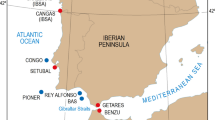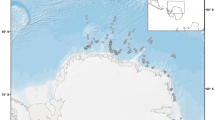Abstract
ON February 17 a Layard's beaked whale was found stranded on the beach a little south of Zwartkops River, north of Port Elizabeth, by Joseph G. Crawford. The following morning I dispatched my assistant, Mr. Jas. Crawford, to inspect the carcase. He brought the tusks back, when the animal was identified as Layard's beaked whale. Immediate action was taken, with the result that; the skeleton is now mounted in the Port Elizabeth Museum. As the carcase was partially decomposed when discovered, it was impossible to save the skin, but measurements and drawings were taken on the spot, and the coloration of the skin noted.
This is a preview of subscription content, access via your institution
Access options
Subscribe to this journal
Receive 51 print issues and online access
$199.00 per year
only $3.90 per issue
Buy this article
- Purchase on Springer Link
- Instant access to full article PDF
Prices may be subject to local taxes which are calculated during checkout
Similar content being viewed by others
Author information
Authors and Affiliations
Rights and permissions
About this article
Cite this article
FITZSIMONS, F. Layard's Beaked Whale (Mesoplodon layardi, Flower). Nature 76, 247–248 (1907). https://doi.org/10.1038/076247a0
Issue Date:
DOI: https://doi.org/10.1038/076247a0
Comments
By submitting a comment you agree to abide by our Terms and Community Guidelines. If you find something abusive or that does not comply with our terms or guidelines please flag it as inappropriate.



